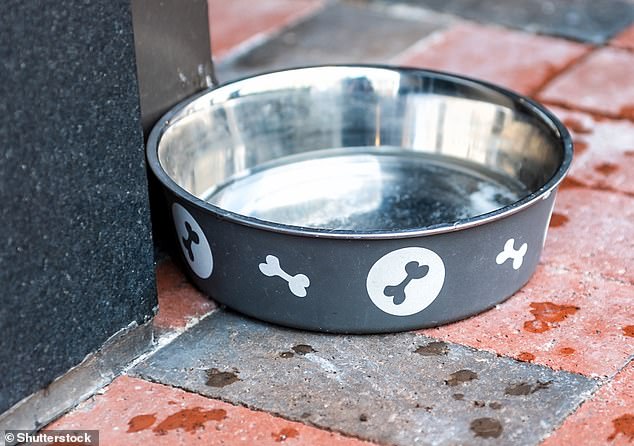
Vet Exposes Hidden Health Hazards in Shared Dog Water Bowls at Pubs
Why Your Dog Should Avoid Public Water Bowls This Summer
As summer approaches, many dog owners let their pets drink from communal water bowls outside shops or parks. However, Dr. Jacqueline Boyd, an animal scientist at Nottingham Trent University, warns that these bowls can pose serious health risks due to harmful bacteria and viruses.
Hidden Dangers in Shared Bowls
Public water bowls are breeding grounds for pathogens like E. coli, which can cause severe gastrointestinal issues. While some strains are harmless, others may lead to kidney problems or even fatalities, especially in puppies, older dogs, or pets with weakened immune systems.
Another concern is Methicillin-resistant Staphylococcus aureus (MRSA), a drug-resistant bacteria causing skin infections. MRSA can spread between dogs and humans, making it a dual threat. Additionally, kennel cough—a contagious respiratory infection—spreads rapidly through contaminated bowls, toys, or close contact. Caused by bacteria like Bordetella bronchiseptica or viruses, it results in a persistent cough and can escalate in vulnerable dogs.
[Image suggestion: Dog drinking from a public bowl with a red "X" overlay to highlight the risk.]
Safer Alternatives
Dr. Boyd advises bringing a portable water bottle or bowl on walks. If needed, ask cafes or pubs for a fresh bowl of water instead of using shared ones. At home, wash your dog’s bowls daily with hot water or a dishwasher to prevent bacterial buildup.
Understanding Kennel Cough
Kennel cough spreads through saliva or nasal secretions in shared spaces. While most cases resolve on their own, puppies and immunocompromised dogs risk complications like pneumonia. Vaccination and avoiding crowded dog areas can reduce transmission.
[Image suggestion: Close-up of a dog coughing, labeled "Kennel Cough Symptoms."]
Hydration Tips for Hot Days
Dogs cool themselves by panting, making hydration vital in summer. Those eating dry food may drink more water, while pets on wet diets need less. Always monitor water intake and refill bowls with clean water.
Expert Reminders
Even with precautions, dogs may still drink from puddles or eat questionable items. Stay vigilant, and consult a vet if your pet shows signs of illness. As Dr. Boyd admits, her own dogs occasionally sneak risky snacks—proof that prevention is a constant effort.
[Image suggestion: Micrograph of B. bronchiseptica bacteria.]
Final Tips from Vets
Veterinarian Dr. Anna Foreman emphasizes sun safety: dogs can get sunburned, particularly short-haired breeds. Provide shade, avoid midday walks, and use pet-safe sunscreen. Medium-sized breeds may have higher cancer risks, so regular check-ups are key.
By prioritizing clean water and mindful care, owners can ensure their dogs stay healthy while enjoying summer adventures.
Word count: ~600


